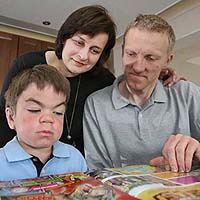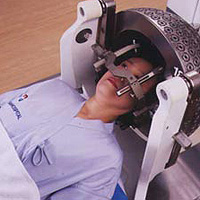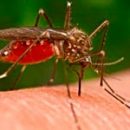It is no secret that a large number of parents have difficulties with obtaining relevant education for their children suffering from serious diseases. It happens even despite the fact that most parents and teachers want to do for children everything as best as possible.
Content
Education
It is no secret that many parents have difficulty getting appropriate education for their children suffering from serious diseases. It happens even despite the fact that most parents and teachers want to do for children everything as best as possible. What prevents? Sometimes these are the rules for which public educational institutions are functioning. Sometimes it is a lack of knowledge about Hunter syndrome (and other diseases leading children to disability) from parents or teachers. Sometimes it is the distrust of teachers and parents to children with serious developmental impairment.
Early stimulating learning
Given the accumulative nature of the disease, it is very important to start doing the child as soon as possible. Babies and very small children suffering from mucopolysaccharideosis can better master various skills than older children using stimulating programs that mobilizing the maximum of the intellectual possibilities of the child. This is especially important in the case of diseases in which periods are observed without visible progress. It is necessary to start teaching the child precisely on the stimulating program immediately after diagnosis.
Planning and control
 With severe forms of mucopolysaccharidosis due to a fairly rapid regression in the skills and peculiarities of behavior in educational institutions, changes in the child's behavior. It is necessary to in every way to encourage the desire of a child to study, its participation in public life and the preservation of previously acquired skills.
With severe forms of mucopolysaccharidosis due to a fairly rapid regression in the skills and peculiarities of behavior in educational institutions, changes in the child's behavior. It is necessary to in every way to encourage the desire of a child to study, its participation in public life and the preservation of previously acquired skills.
The training space and training methods need to constantly adapt to the difficulties of the child expressing in the restriction of mobility, complicated by the process of perception and knowledge, as well as the problems of behavior.
Teachers often need additional support to accept restrictions in the skills of the child, the progression of his illness, so as not to demand from a child that he is simply not capable. The process of planning and developing an educational program may be difficult for educational staff engaged with children suffering from progressive diseases. After all, the traditional education system focuses on improving skills and significantly less attention pays for support for already received skills.
Medical problems
When planning a training program, some attention should be paid to the problems of mobility, hearing loss and vision. Educational institution must have teachers specializing in working with children with loss of vision and hearing. Problems of limited mobility and other physical restrictions due to illness should be allowed with consultations with doctors. Distribution of children with mukopolyimaccharideosis in classes or groups, planning their participation in certain projects (for example, in art projects) should be carried out in such a way that sick children can be able to communicate as much as possible with their healthy peers as possible.
Problems of behavior
Problems of behavior in children with mucopolysaccharideosis are much more often interpretable by staff of educational institutions as an abslation, rather than as a manifestation of the disease. Most of the behavior problems in children with severe mucopolysaccharidosis caused by neurological manifestations of disease, disadvantage of understanding, difficulties of communication or sensory restrictions.
To resolve these problems, the personnel of the educational institution should apply the approach rather interventional, rather than disciplinary. Call a child «On the carpet» to the director, teacher and t.D. - A very inefficient way to solve problems caused by the disease. Conduct difficulties should be considered as a complication of a medical nature, and not as an offense. The solution of some problems of behavior can significantly help change the classroom and training methods. Teachers may need consultative assistance to overcome hyperactivity, restlessness and imaginity of their. Teachers must own the principles of the management and maintenance of children's behavior. To maintain relevant behavior, an emphasis should be made to change the environment in the room for classes (or the classroom) and the fixing of behavioral skills.
Socialization
School attendance and socialization of children should be encouraged and stimulated by introducing certain social skills. The independence of the child must be supported. Teachers can do a lot in order to approve the child's behavior through educational actions, such as joint training and encouraging support for all children in the classroom. In adolescence, additional education and support is needed, especially for adolescents with a moderate form of mucopolysaccharidose.
Career and Further Education
Teachers should predict the learning process based on the understanding of the restrictions. Children with a moderate form of mucopolysaccharidosis have a normal or slightly detainee intellectual development. Teachers should not evaluate the degree of intellectual development of the child in its appearance, since people with mucopolysaccharideosis even with the preserved intelligence external manifestations of the disease can be very strong. Accordingly, the high expectations of the intellectual development of the child will contribute to its realistic self-esteem and increase its achievement. Academic and vocational training should contribute to human independence, career goals must be realistic. Planning a transition from school to higher (secondary) educational institution or to work should be carried out as well as for healthy people.









